Latinx Heritage in Horror Month 2024: An Interview with Gerardo Sámano Córdova
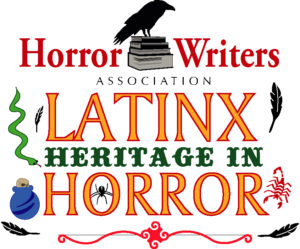
What inspired you to start writing?
Reading books I loved.
Tell us about your work in 25 words or less.
My work is queer, monstrous, and playful.


What inspired you to start writing?
Reading books I loved.
Tell us about your work in 25 words or less.
My work is queer, monstrous, and playful.

What inspired you to start writing?
I guess the same thing as every other writer: I couldn’t find what I wanted to read, so I decided to write it myself.
Tell us about your work in 25 words or less.
I’m chaotic and don’t stick to any literary genre: I write everything from horror to romance.

What inspired you to start writing?
I had always loved telling stories going back to when I first learned how to read and write. Through grammar and high school, college, and even law school, I worked on journals where I could write and also draw (I was a prolific cartoonist back in the day). But when I became a lawyer, I focused on my profession as well as raising a family though I did write essays on the law quite often for the Daily Journal, the well-established newspaper serving the Los Angeles legal community. But then at the age of 39, my wife suffered the fifth of what would be seven miscarriages. I supported her and our young son in their grief, but I was not handling my own grief very well. So I started to write what would eventually be my first book, a novella titled The Courtship of María Rivera Peña, which is now out of print.

What inspired you to start writing?
In my life, I often feel powerless against so many injustices. When I write, I have a power I can get nowhere else. It’s incredible.

Just a quick reminder: the Horror Writers Association scholarship applications are due October 1st. The following scholarships are available.

What inspired you to start writing?
I read a lot growing up, becoming particularly obsessed with Encyclopedia Brown. As I grew older and moved on to King and others, I’d sometimes wonder if I had it in me to write a book. I eventually gave it a try and came to understand just how hard it really was! I gave up many times but my thoughts always returned to finishing the book, which eventually became The Ghost Tracks.

What inspired you to start writing?
I am often inspired by trippy things, the uncanny, and stories involving divergent perspectives. For my latest book, I was inspired by a lot of different things that came together in strange and fun ways. One big one was the history of the future of the Devil and its many cool manifestations in fiction. Another was storytelling in general and the way we talk about writing Craft. Another inspiration was the experience of being an immigrant writer and anti-immigrant narratives. Also Brazilian literature and 1980’s and 1990’s movies like The Fly and Gremlins 2. This and more was part of the brew that ended up becoming Craft: Stories I Wrote for the Devil.

What inspired you to start writing?
When I started my self-published comic book series, one of the many roles alongside drawing was the writing process. Being a visual person, writing out details to convey the image to the reader is important. Music certainly has its inspiration, especially the lyrics. My love for Siouxsie and The Banshees’ music inspires me because their songs read like stories, and always painted a vivid image for me to draw on.

What inspired you to start writing?
I’ve been a longtime collector of magazines, zines, and journals about all kinds of art, music, folklore--you name it. The more obscure and the strange, the better. I had written a little about books and literature previously, but about six years ago I realized I could be a contributor to many of these magazines and journals. So, I was inspired by all the passionate authors out there writing essays and articles on topics such as folk horror, metal music, phenomenology, and weird studies. So, I put my pen to paper and soon found my work among the pages of the publications I collected! These include Vastarien, Hellebore, Myth & Lore, Dark Matter Magazine, anthologies by Anathema Publishing, and more.

What inspired you to start writing?
I could tell you that every time I write I start from scratch, it’s like a leap into the void. I’ve been doing it for as long as I can remember. I wish I could tell you about an epiphany or a moment of enlightenment, but that wasn’t the case. It’s something that’s always been with me.
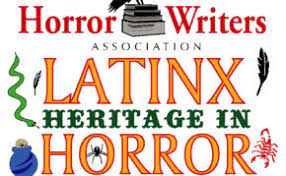
What inspired you to start writing?
My fourth-grade teacher recognized my ADHD tendencies to constantly daydream and make up stories and encouraged me to write them down. While it took me a while to claim the professional title of author, I have been writing ever since then as storytelling seems to be what my brain is wired to do.

Welcome to Latin American horror! Latin American horror literature reflects human darkness. Beyond ghosts, what scares us the most is what we carry inside. It is not the monsters or the ghosts that add the disturbing component to our literature. It is the deep exploration of the human condition and its possibilities that leave readers with a dry throat. It is the ability of Latin writers with their stories that allow us to feel loneliness, hatred, abandonment, and resignation. The supernatural feels smaller than the narratives of what we Latin Americans can carry inside. Horror in contemporary Latin American literature is fueled by domestic and everyday events.

As a novelist, short-story writer, filmmaker, playwright, and theater director, John Patrick Higgins has explored the art of story-telling from many different perspectives. In this month’s edition of Nuts & Bolts, he discusses the counterintuitive similarities between horror and humor, and gives advice for authors who’d like to try writing for the stage.
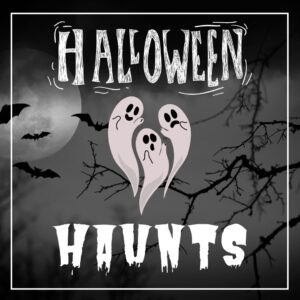
From October 1 through October 31, the Horror Writers Association will host an online event to celebrate the month of Halloween and help horror readers and horror writers connect at the eeriest time of the year.
All HWA members are invited to participate in this series of daily blog posts, book excerpts, and more. Halloween Haunts offers HWA members a place to share Halloween anecdotes and stories to connect with new readers, spread the word about members’ new works, and raise the profile of the horror genre and the HWA.
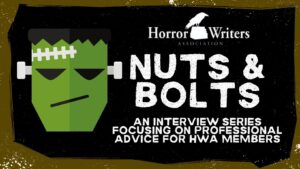
Nobody becomes a writer because they had childhood dreams of negotiating contracts. Like it or not, according to author Todd Keisling, it’s part of the job for authors without an agent. In this month’s edition of Nuts & Bolts, Todd talks about what authors – particularly beginners – should know about self-advocacy.
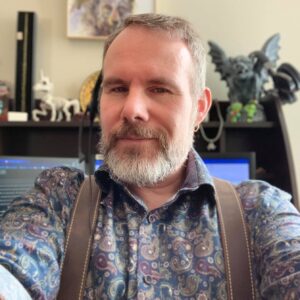
What inspired you to start writing?
I’ve always been a big reader. When I was in my teens, in the 80s, and figuring out who I was and my orientation, there weren’t any books that reflected me or guys like me. If there were gay characters they were side stories, often made out to be broken individuals, or mentally unstable, the first to die, or worse, the villain or antagonist of the story – because their sexual orientation made them that way. I didn’t like that. In my 40s, I started to review my accomplished bucket list of items and realized that writing had always been on there, but I hadn’t done anything about it. I started writing. But more importantly, I created worlds where the main characters were part of the LGBTQ+ world. I wanted people within my community to see that we could be the heroes. More importantly, I wanted the rest of the world to see that queer folk could be the heroes.
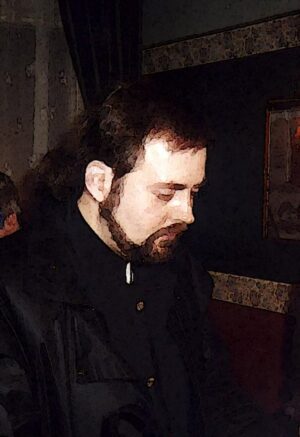
What inspired you to start writing?
I’ve always written, mostly for my own amusement, since I was a small child. To me, it was something you just ‘did’ - invented stories and fancies – and I sometimes found it odd that others didn’t. My own breakthrough moment was when I stopped drafting endless convoluted novels and went directly into writing short stories, novelettes, and novellas, most of which sold immediately. So I kept doing that.

What has writing horror taught you about the world and yourself?
My first published works are paranormal horror mysteries that delve into the world of the occult and various other things. It has been wonderful to learn even more about our world’s history and, though I had already assumed, how many things within the horror genre are based on old beliefs and myths that were once rooted in a true story. Every story has a root in some experience at one point in time.

What inspired you to start writing?
I’ve loved writing for so long I can’t remember starting! I was writing short stories at least as far back as second grade, maybe earlier. I’ve always been a voracious reader, and whenever I read something that I really love, I have to try to figure out how to do it myself.

Who are some LGBTQ horror authors you recommend our audience check out?
I always recommend that people start with the classics. Oscar Wilde created one of the greatest psychological horror stories in The Picture of Dorian Gray. The gay subtext that is baked into Dorian’s relationships with the men of the book, their own self-hatred, and inability to admit their love, jealousy, and obsession for Dorian leads to terrible fates for the female characters. William J. Martin (formerly Poppy Z Brite) has written some of the best, most luscious stories I’ve ever read.